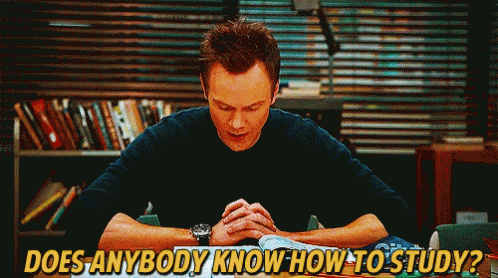This advice could prove particularly timely for college students all over Ireland right now.
Ireland is in the midst of a glorious spell of weather right now, which, as usual, happens to coincide with exam time in third level institutions all over the country.
While the vast majority of students doing those exams find it incredibly hard to resist the temptation to enjoy that sunshine, the hours have to be put in if you want to get the desired results.

Getting the most out of those study hours is hugely important, of course, and with that in mind, students might well want to read some advice from David Cosgrave, a lecturer in the business school at the University of Limerick.
A leading exam coach, David has been setting and correcting exams at third level for almost a decade and in that time, he has repeatedly spotted simple mistakes by students that are easily identified and more importantly, easily rectified.
The number one offender on the list of student mistakes in an exam, according to David, is not answering the question asked.
Below, he explains why the problem occurs and what you can do to go about correcting it.
Students misread the question
- You need to take adequate care to read the paper thoroughly (allocate 10-15 minutes), making sure that you understand what each question is asking of you.
- Underline, highlight or draw stars around the key words/sentence. Whatever works best for you.
- If you are completely unsure on something, ask a question. Most lecturers will be available for a limited period during the exam. Take this opportunity to clarify something if you need to.
Although this is usually a genuine mistake, you will not do well if you do not answer the question that is asked.
Students have an answer learned off
This is something I am guilty of doing in my own college life but it is a very poor approach to exams.
- First, there is a chance the question may not be asked exactly the way you have prepared for. If this happens, you need to adapt your answer, otherwise, you are deliberately not answering the question asked, in the same way that you would not demonstrate a hill-start during your driving test, when asked to do a three-point turn.
- Every exam will have a grading scheme. This grading scheme will have been set by the lecturer and approved by an external examiner. If you do not address the points on the grading scheme you will not do well. Simple as. In preparation for your exams you should familiarise yourself with a typical exam grading scheme. If one hasn’t been provided contact your lecturer and request a sample one. Your focus in any exam should be on hitting the points on the grading scheme.
- You will likely be nervous when it comes to the morning of your exam. Nerves and adrenaline can make you forget information you have learned. I have seen students forget lines from an answer they have learned off and panic. Worse still, I have seen students completely blank and become distraught. It is not something anyone wants to see (even the toughest examiners). Never learn off essays. Identify priority information on relevant topics and adapt these to the question asked on the paper. By failing to answer the question asked you are showing incompetency (remember the purpose of an exam!).



 Getting the most out of those study hours is hugely important, of course, and with that in mind, students might well want to read some advice from David Cosgrave, a lecturer in the business school at the University of Limerick.
A leading exam coach, David has been setting and correcting exams at third level for almost a decade and in that time, he has repeatedly spotted simple mistakes by students that are easily identified and more importantly, easily rectified.
The number one offender on the list of student mistakes in an exam, according to David, is not answering the question asked.
Below, he explains why the problem occurs and what you can do to go about correcting it.
Getting the most out of those study hours is hugely important, of course, and with that in mind, students might well want to read some advice from David Cosgrave, a lecturer in the business school at the University of Limerick.
A leading exam coach, David has been setting and correcting exams at third level for almost a decade and in that time, he has repeatedly spotted simple mistakes by students that are easily identified and more importantly, easily rectified.
The number one offender on the list of student mistakes in an exam, according to David, is not answering the question asked.
Below, he explains why the problem occurs and what you can do to go about correcting it.